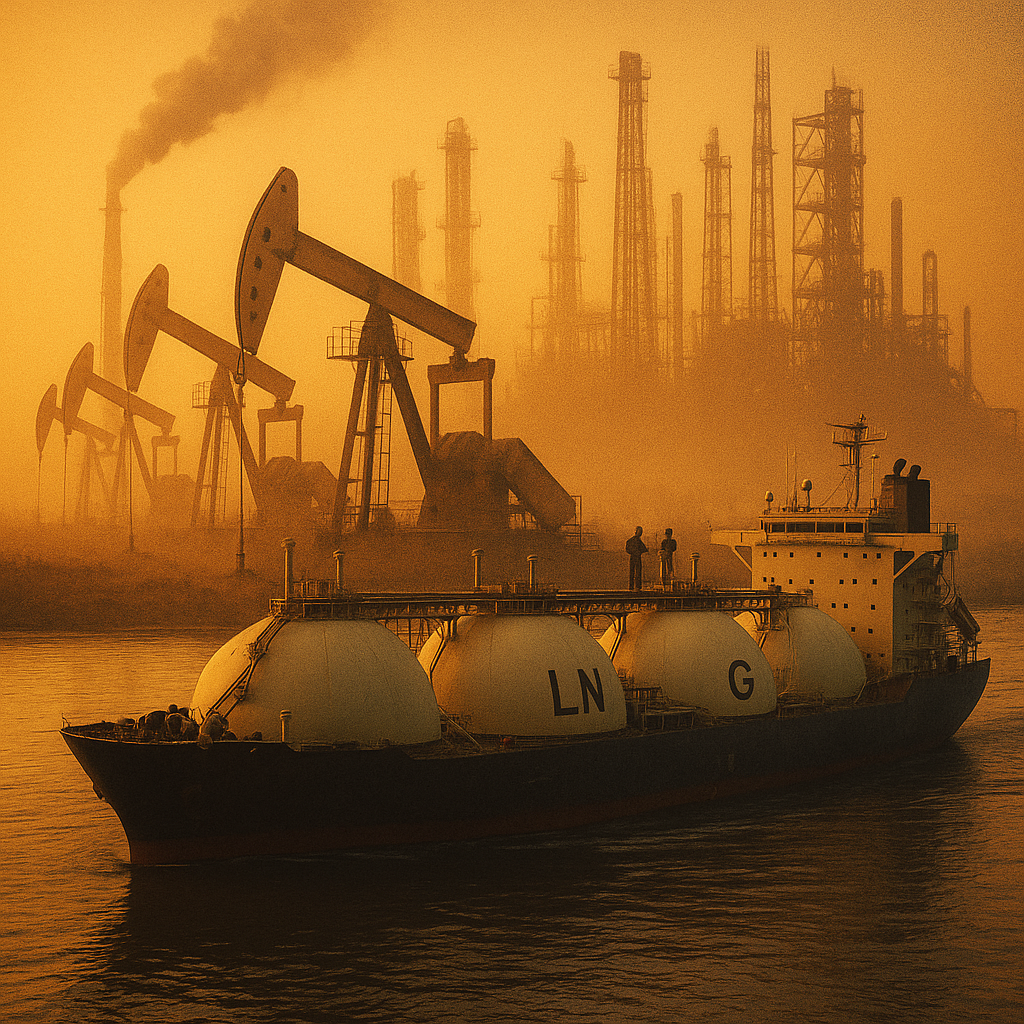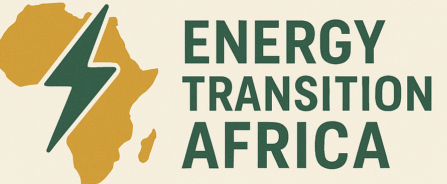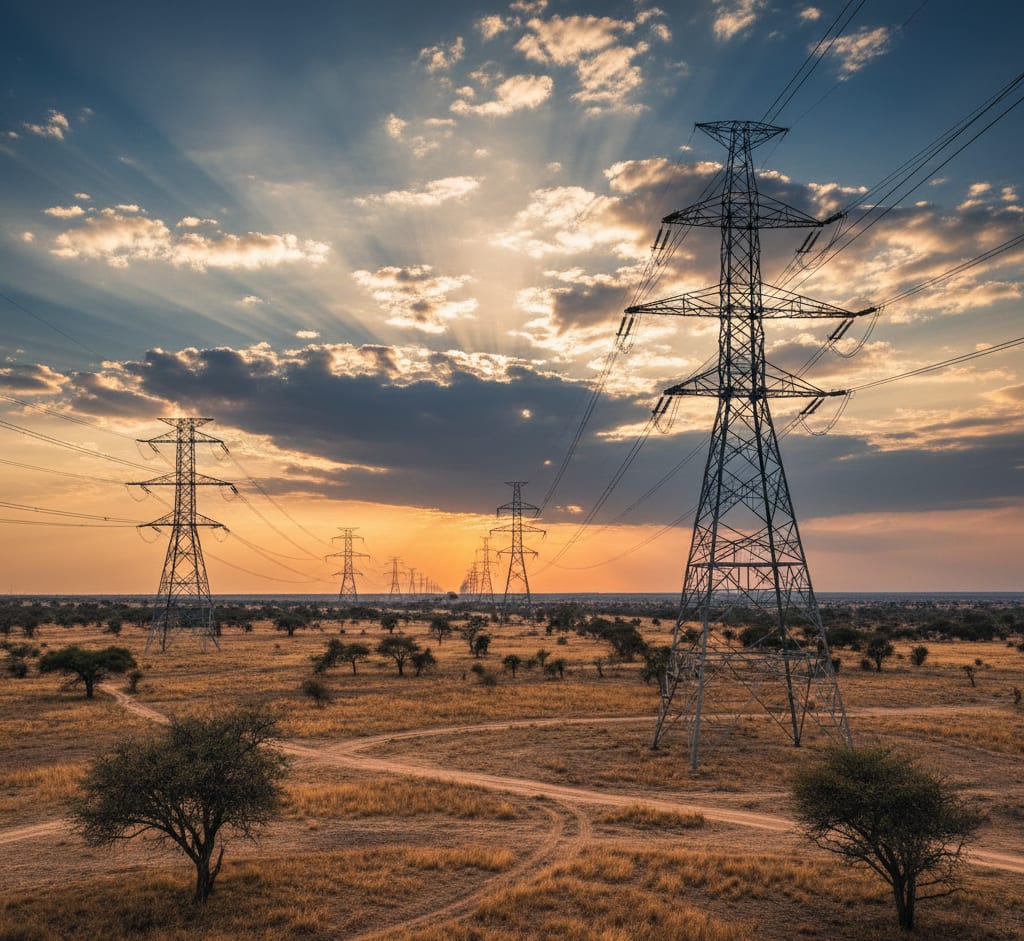Gas Diplomacy Returns at Climate Week: Will Africa Be Left Holding the Fossil Bill?

Climate Week NYC 2025 was billed as a stage for accelerating renewable energy and aligning finance with climate justice. Yet amid the solar pledges, adaptation finance panels, and investor showcases, another storyline emerged: natural gas is back on the diplomatic agenda.
Senior U.S. officials openly described gas as a “huge leverage point” for global diplomacy (Axios). The World Bank’s Anna Bjerde suggested that while solar leads Africa’s future, gas “has to be discussed and pursued” to meet energy access gaps (Semafor).
For Africa, this resurgence of gas diplomacy comes at a dangerous moment. Fossil revenues are already in decline. Global demand is shifting. Yet the continent is being courted as both supplier and consumer of gas, raising the risk that Africa will be left with stranded assets, declining revenues, and fiscal holes as the rest of the world moves on.
Gas as a strategic fuel in geopolitics
Gas is no longer framed merely as a commodity. It is a geopolitical tool. For Washington, expanding LNG exports to Europe and Asia strengthens allies, weakens rivals, and bolsters influence. For African exporters, this can look like an opportunity: Mozambique’s LNG projects, Nigeria’s gas fields, and Senegal’s offshore reserves are all being positioned as pillars of this strategy.
But the context is sobering. Europe has capped new gas contracts in line with its net-zero goals. Asia is investing aggressively in renewables to reduce import dependency. And global institutions from the International Energy Agency (IEA) to Carbon Tracker warn that 60% of new gas projects could become stranded by 2040.
What may be a short-term diplomatic tool for major powers could become a long-term economic liability for Africa.
Nigeria: doubling down on gas
Nigeria’s updated climate plan offers a vivid example. Its Nationally Determined Contribution (NDC) expands the role of fossil gas as a “transition fuel,” targeting 17 GW of gas-fired capacity by 2035, double today’s levels (Climate Home News).
Officials argue that gas is cleaner than coal, provides reliable baseload power, and can underpin industrial growth. Yet critics warn this approach diverts scarce resources from renewables and exposes the country to volatility. Nigeria already depends on fossil revenues for over 40% of its fiscal receipts. If global demand declines faster than anticipated, gas infrastructure may be stranded before debts are repaid.
The deeper issue is not technical but structural: gas is framed as the bridge, but the bridge leads nowhere if no clear exit strategy is mapped.
Mozambique and Senegal: LNG dreams under strain
Beyond Nigeria, Mozambique and Senegal offer parallel lessons.
Mozambique’s massive LNG projects, once projected to reshape its economy, have been delayed by insurgency in Cabo Delgado and shifting market conditions. Investors remain cautious, and timelines slip further each year.
Senegal, once hailed as Africa’s new frontier, has seen BP exit a flagship gas project, citing market uncertainty. For Dakar, the narrative of gas as a guaranteed growth engine is looking increasingly shaky.
These experiences highlight a central risk: gas diplomacy creates political expectations that the economics no longer guarantee.
Africa’s fiscal cliff: fossil revenues in decline
As detailed in Fossil Fuel Revenues in Decline: Who Pays for Africa’s Transition?, oil and gas revenues across Africa are already shrinking. The 2014 oil crash forced Nigeria into recession and Angola into IMF bailouts. Even at $80 per barrel, volatility keeps finance ministers awake at night.
Gas revenues are no safer. LNG infrastructure is costly, markets are volatile, and credit risks are high. For Africa, clinging to gas as a fiscal lifeline is gambling with the future.
Comparative lessons: Asia and Latin America
Other regions offer instructive contrasts.
- Asia: Countries such as Vietnam and the Philippines initially adopted LNG as a transitional fuel. However, high import costs, currency risks, and declining renewable energy prices are prompting a shift toward solar and offshore wind. Africa risks repeating the same missteps, with less fiscal resilience.
- Latin America: Argentina doubled down on shale gas, but Chile bet big on renewables and green hydrogen. Today, Chile is reaping lower energy costs and positioning itself as a net exporter of clean energy. Africa must decide which model to follow.
The stranded asset dilemma
Stranded asset risk is not hypothetical. According to Carbon Tracker, over $400 billion in African gas assets are at risk of stranding by 2040.
The economics are brutal: LNG plants and pipelines require decades to break even. If global demand peaks in the 2030s, many African projects will not recover costs. Stranding will mean lost revenues, fiscal shocks, and heavy debt burdens for governments already stretched thin.
This raises a critical point: gas is not a “bridge” for Africa. It is a trap disguised as a bridge.
Whose voices are missing?
Climate Week also exposed another injustice: African civil society was underrepresented. Visa restrictions barred many activists and community leaders from entering the U.S. (Climate Home News).
Their absence meant fewer voices challenging fossil narratives or highlighting community impacts of extraction. In New York, gas was discussed as a diplomatic commodity—not as a lived reality for people displaced by pipelines or children mining critical minerals.
This imbalance reveals the stakes: if African voices remain sidelined, the global gas diplomacy narrative will continue to be written by others.
Civil society resistance: from New York to Lagos
Yet resistance is growing. During Climate Week, the “Sun Day” protests mobilised thousands across New York to call for solar equity and an end to fossil expansion (The Guardian). Similar mobilisations are rising in Africa. Civil society campaigns in South Africa, Uganda, and Nigeria are contesting gas expansion plans, demanding investment in distributed renewables, and framing just transition not as elite rhetoric but as community survival.
The fight over gas is no longer just about policy, but about justice.
Pathways forward: what must change
o avoid being left holding the fossil bill, Africa must make deliberate choices:
- Develop clear phase-out roadmaps
Gas can only be transitional if there is a defined exit. Without phase-out timelines, it becomes an indefinite crutch. - Prioritise local currency finance for renewables
As argued in Finance in Local Currency: A COP30 Demand, concessional local-currency lending is essential to break dependency on volatile imports and expensive debt. - Invest in value addition, not exports
Africa should channel resources into local energy access, industrial uses, and renewable integration, not LNG exports designed for external markets. - Strengthen civil society inclusion
Visa barriers, funding constraints, and repression must be addressed to ensure African voices shape, not just observe, global climate diplomacy. - Demand global accountability
Importing nations cannot phase out gas domestically while promoting it abroad. Climate justice requires symmetrical commitments across supply chains.
Conclusion: Africa at the crossroads
Gas diplomacy’s resurgence at Climate Week underscores the contradictions of global climate politics. For wealthy nations, gas is leverage. For Africa, it risks becoming a liability.
If African governments align too closely with this narrative, they may secure short-term revenues but lose long-term resilience. The continent must choose: chase dwindling gas rents, or seize the renewable opportunity.
The world is not done talking about gas. But Africa cannot afford to be the last guest at the fossil banquet, left to settle the bill when everyone else has gone home.



